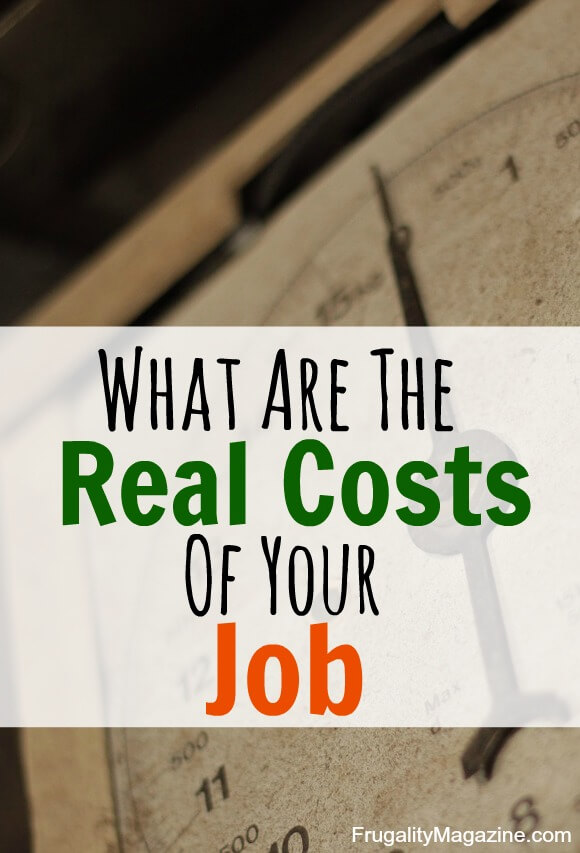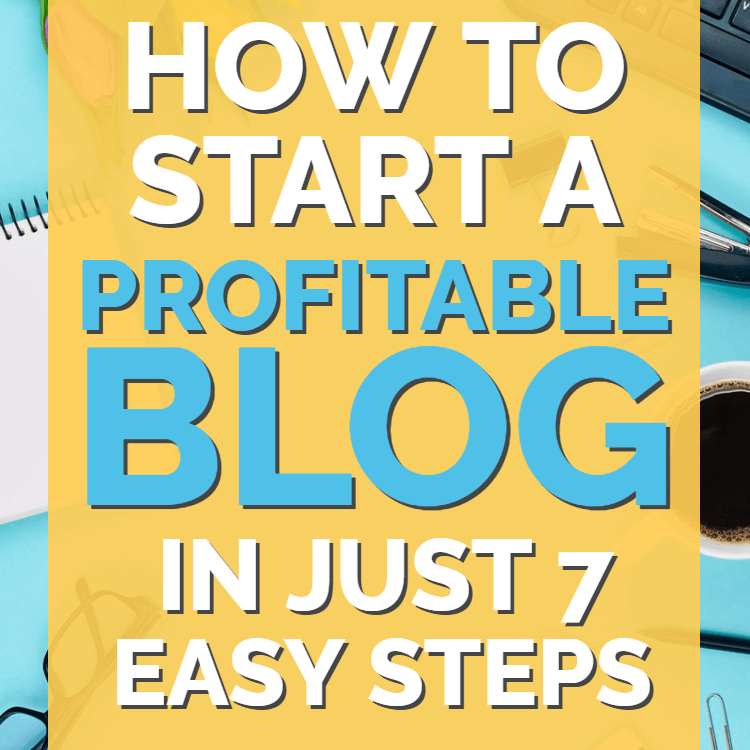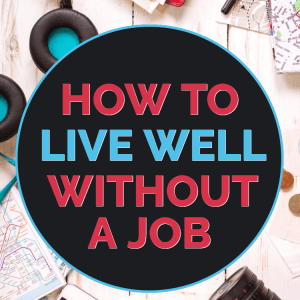Contents
A couple of years ago I found myself getting ever more fed up with my job and eventually realized that it was time for a change.
I spent some time investigating the available options and eventually settled on two different roles that would suit me.
One was the “passion” job – one that I’d love yet didn’t pay very well. The other one was far less “me” yet paid almost twice as much. What to do?
In a perfect world of course we’d all choose the role we’re passionate about and to hell with the finances. Money – as they say – isn’t everything.
But we don’t live in a perfect world and, especially when it comes to jobs, the salary can be a major influence on which role we eventually sign up for.
This is especially so for those of us who are obsessed with personal finance, getting out of debt and building a strong financial future. We know that money is a tool and when appropriately applied can lead to future freedom and stability.
So it should come as no surprise that eventually I put my personal opinions to one side and opted for the better paid position. Regular readers will know exactly how well that worked out 😉
Surprisingly, based on my feelings about my job a few months ago, things have actually got worse. I kid you not. I won’t go into specifics (right now) but I’m now considering some alternative roles. I won’t jump ship for just anything, but it makes sense to at least see what opportunities are out there right now.
Which brings me (finally!) to the point of this post…
Finances are important. On that we can agree. Nobody wants to get into debt or rely on a credit card to make ends meet. And very few of us could work for free if we wanted to. But looking just at the “dollar” value that an employer is offering you won’t necessarily give you all the information you need to make an informed decision.
Just because one job is offering $30,000 and another starts at $40,000 doesn’t necessarily mean that the second offer is better – though it may seem so at first.
You see, any kind of job has “costs”. Sometimes they’re financial; other times they’re time costs or emotional costs. But let’s not be under any illusion here – when you work you’re always exchanging your time/energy/skills for money.
It’s a transaction where your employer expects you to provide more benefit to them than they’re paying you for. Don’t believe me? Right now, I’m expected to make the company at least $300 for every hour that I work. And believe me – they pay me a lot less than that per hour.
They have the resources, the contacts and the economies of scale – in exchange I’m expected to make them back many times what they pay me each day. They’re certainly not paying me wages out of the goodness of their hearts.
The point is that when you’re trying to make a decision about a future employer (or even a promotion with your current employer) the money they’re offering you should only form part of your decision-making process.
After considering the “input” (money) we also need to consider your “output” – the costs of actually doing your job. The best job – from a purely Machiavellian perspective – is the one that has the best cost:benefit ratio – or putting it another way, the one that will bring you the greatest “profit” when the costs and benefits are compared.
So what are these factors? What should you be including in your cost:benefit analysis when selecting a new job? Here are some worthy of consideration…
Transport To And From Work
Unless you’re very lucky you’re probably going to have to travel to work. This will cost you money as well as time – as most employers won’t pay you to get to work. You travel to work on your own time and then clock in.
So consider how much time you’re going to spend commuting each day. Will you be travelling in rush hour, where the journey will take longer, or is there some flexibility where travelling off-peak – or working from home some times – will save you money and time.
Also – how are you going to get there? If you’re going by public transport, does your employer have any kind of scheme to reduce the costs here? If you’re driving, try to estimate your fuel costs and also examine the sticky issue of parking. Working in a big town or city, free parking can have a lot of value when compared to people who have to pay exorbitant rates to park in public car parks every day.
And as well as the physical costs consider any emotional costs. Are you happy to sit on a crowded train or in busy traffic five days a week or would this eventually crush your soul?
Work Attire
What are you expected to wear to work? And how does that make you feel? If you’re provided with a uniform, for example, how much do they provide? Some employers provide only minimal uniform forcing you to do laundry far more often than normal (more of your free time gone). And if you are provided with uniform is it comfortable and practical or will you spend your whole life feeling embarrassed, hot and itchy?
If you’re expected to wear a suit and tie every day, don’t forget that business attire can be expensive – not just to buy but also to dry clean. And don’t forget that popping to the dry cleaners is arguably even less practical than being able to pop your work clothes in the washing machine at home.
And let’s not forget how some people feel in business attire. While some people love to be well presented and love to wear a well-tailored suit, others will feel uncomfortable or out-of-place and what about wearing a tie in the heat of the summer?
Perks Of The Job
Every employer claims to offer “perks” – some non-financial benefits of working for them – though the value and range of these can vary massively. For example some supermarkets claim that giving you a couple of items of uniform is a “perk” though this always seems a little cheeky to me.
But what else might you find? Free coffee? Opportunities for continued education? Free nights out? Car pooling? A company car even?
Some of these perks may have real value for you. Others? Not so much.
And remember that while some perks like a company car has the potential to save you a lot of money each year others like professional development may have no immediate financial impact but can make your work more rewarding as well as providing opportunities for growth (and pay raises) in the future.
Equally, appreciate that some “perks” can be quite the opposite depending on your personality. For example I’ve had a number of jobs that gave me a free cell phone – the problem being that the company then expects to be able to contact you at any time – even if you’re on a day off.
Or consider that company car. If you’re planning to stay with the company for a good long time then it may be an excellent perk. But what happens when you leave? You’ll need to buy your own car. Or, alternatively, if you already have your own car you’ll need to decide whether to sell it and use the company car instead or leave it rusting and depreciating in your driveway.
Decompression
Depending on the industry you’re in there’s a fair chance that you will finish the day feeling emotionally or physically drained. To some people that’s fine. For others that’s an issue and requires considerable time to recover from.
And then of course there are the times spent outside of work but still in some way engaged in work. Maybe that’s answering emails or text messages in the evenings. Maybe that’s finishing off some paperwork at home. Maybe it’s as simple as finding yourself lying in bed each night mulling over the day and planning for the next.
None of these things are “paid” – you clocked off and left work hours ago. But they’re still robbing you of your free time so they should still be considered a “cost”.
I remember some years ago moving from one company to another. The first company basically took over your life and a lot of my days off and evenings were spent answering phone calls or emails. The second company put more emphasis on a fair work:life balance and tried not to contact you when you were off.
The difference between the two companies was amazing – and the feeling of freedom I got with the second employer was surprisingly heady. As soon as I walked out of the door I was free – rather than the previous company where I expected to have my personal time interrupted regularly because it was “the done thing”.
Time Flexibility
What are the things that you really love to do outside of work? For example, are you a keen follower of a specific sports team? If so, do the hours that your new job expects fit around watching the games or will you have to miss some/all of them? How does this make you feel?
I’d argue that missing out on your passions like this has a high cost – and I’d expect a sizable increase in salary to accommodate this when compared to the employer who gives you every weekend off like clockwork.
Conclusion
The aim of this article isn’t to be negative and point out all the bad things about your job. It’s to highlight a range of issues that I’ve experienced over the years that can affect how much you enjoy your job.
Sometimes a lower wage with a better working environment is truly worth it. In other situations a little “discomfort” at work in exchange for a decent pay raise may well be worth it.
I don’t want to scare you off any new job – no matter what the working conditions may be. We’re all different and the job that suits one person may be totally wrong for another.
But the biggest take-home point here is this: when it comes to finding a new job and comparing different employers, the amount of cash they’re offering you should only form part of your decision-making process.
The other part should look analytically at the working conditions so you can make a fair and educated decision about which role will bring you the greatest “profit”. That is to say consider which job offers the biggest salary with the smallest “cost” – though what counts as a “cost” will vary between individuals.
What non-financial elements of your job do you value? What drives you nuts about your current job? Please leave your thoughts in the comments section below…











[…] Adams @ Frugality Magazine writes What Are The Real Costs Of Your Job? – When you’re trying to decide on a new job (or even a promotion with your current […]
When I worked in a hotel with attached restaurant, they offered a fifty percent discount on lunch. It was too tempting to leave my packed lunch at home and spend money because it was a “perk”. Another hidden cost was ordering food for supper because I was already mentally in a non-cooking attitude. Once I started working from home, food costs dropped drastically.
Tina I know exactly what you mean. I used to work in retail and would be so shattered at the end of a shift that the thought of preparing a home cooked meal after all that was far from tempting!